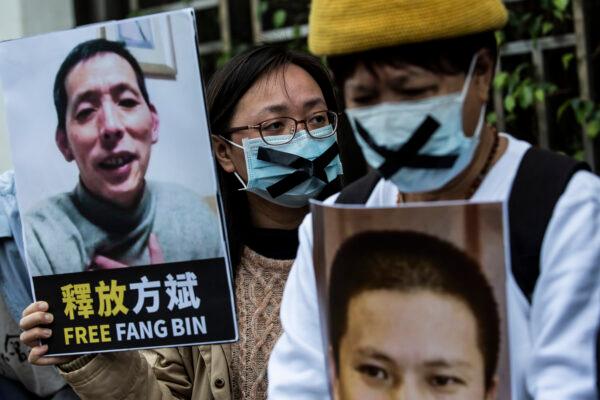One way the Chinese regime has maintained control over the COVID-19 narrative is by imprisoning more people who practice Falun Gong, a nonprofit director told a religious freedom summit on June 30.
China’s ruling Chinese Communist Party (CCP) declared war on China’s independent journalists, doctors, and citizen journalists during the pandemic, including Chinese who practice Falun Gong due to the increased risk they pose to the regime for whistleblowing.
“That is why during the pandemic, Falun Gong incarcerations actually went up, because Falun Gong is no longer just a persecuted minority. It’s also a whistleblower,” Browde said.

Persecution of Those Who Value Truth
There were 3,582 cases of harassment in 2019, but the number of cases jumped to 9,159 in 2020 before climbing to 9,332 in 2021, according to the Falun Dafa Information Center’s new biannual report released in May, titled: “Pandemic, Persecution and Pushback: Trends and Analysis from the Suppression of Falun Gong in China and Beyond.”Last year, 1,372 practitioners were sentenced to prison, a jump from 775 in 2019.
The number of practitioners killed because of their faith also matches the alarming trend. According to the report, there were 180 reported deaths in 2021—almost double the 98 known deaths in 2019. For the first three months of this year, there are already 21 confirmed deaths.
Falun Gong Whistleblowers
“Falun Gong practitioners run the largest underground media and information network inside China,” the report noted.
Prior to the pandemic, Fang was once detained for over four years and “egregiously tortured” for practicing Falun Gong, according to the report.
Murder for Organs
The panel also discussed China’s state-sanctioned practice of harvesting organs from Falun Gong practitioners. The practice turned China into a top destination for transplant tourism because Chinese hospitals often offer short waiting times for matching organs for patients—much faster than developed countries with established organ donation systems.“It’s very much happening in China. it’s very much a money-making business. It’s a multi billion-dollar industry, the act of killing innocent people and selling organs,” Browde said.
Yu said police told her that her father died of a heart attack. But she suspects that determination of the cause of death based on how healthy her father was prior to his detention. Moreover, Yu said the fact that it took more than a month for the police to allow the family to see her father’s body aroused her suspicion.
Under the close watch of police officers, Yu and her family finally got to see the elder Han’s body. But they were in shock at what they saw.
“My father was laying there with green and the purple bruises all over [his body],” Han said. “What struck me the most were the thick stitches on his throat area.”
The stitches extended from the throat area to his abdomen, according to Han. She said her family then pressed his abdomen and found that it was filled with “hard ice.”
“My uncle was furious and confronted the police about what they had done to my father. The police just said that this was due to an autopsy. But no one in my family had consented to an autopsy, and the police also refused to release the autopsy report,” Han said.
She said it hurts every time she shares her father’s story but she must continue doing so.
Crimes Against Humanity
In 2019, an independent panel, called the China Tribunal, found that such practice was happening “on a significant scale” in China. It concluded that such actions amounted to crimes against humanity, with Falun Gong practitioners being the main source of organs.Larry Liu, deputy director of government and advocacy at the nonprofit organization, said the U.S. State Department could help end China’s persecution of Falun Gong.
“We encourage the State Department to consider to designate the persecution of Falun Gong as a crime against humanity and or a genocide,” Liu said.





